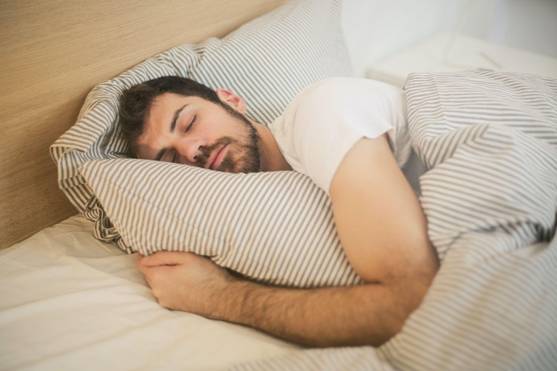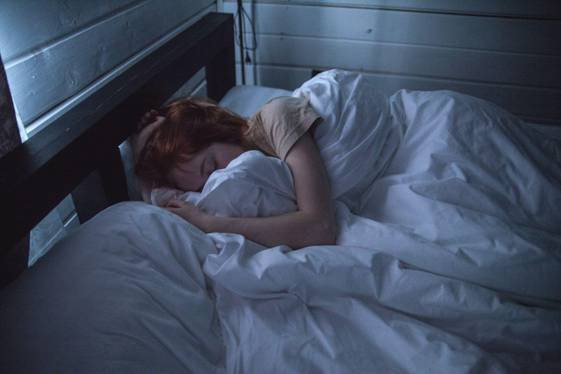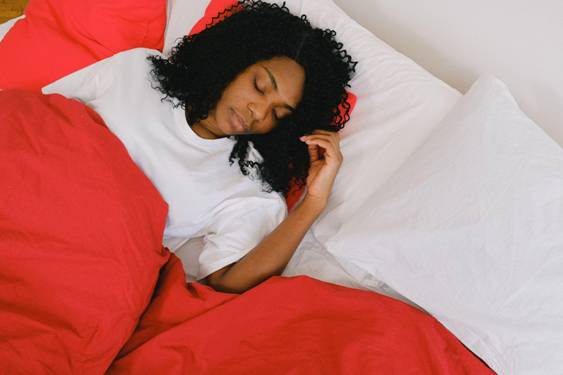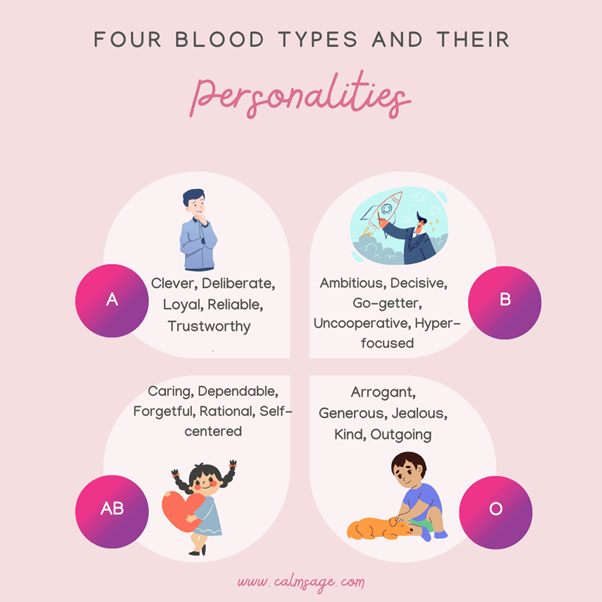What’s The Deal With A Love-Hate Relationship?
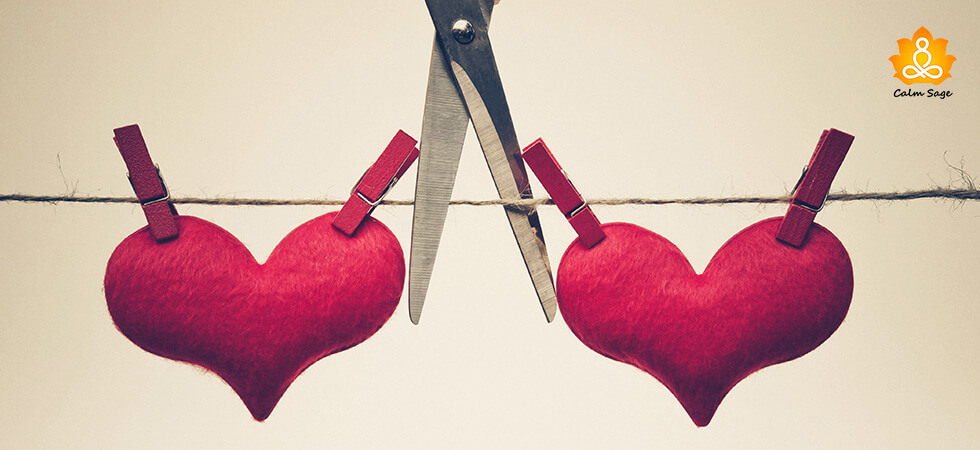
What does it feel like to be in a love-hate relationship? People with experience say that it’s like a full-blown roller-coaster. It’s like a ride you intend to take but not wanting to get on, but how does someone get into a love-hate relationship?
Let’s be honest, I don’t think anyone purposely gets into a love-hate relationship. I think it’s all about the ups and downs a couple goes through in a relationship that makes them love and hate the same person at the same time.
Many people believe that you’re excited and exhausted at the same time when you’re in a love-hate relationship. But, is it true? Can having a love-hate relationship leave you exhausted and drained?
Let’s learn the truth behind love-hate relationships, what causes love and hate in relationships, and how you can navigate the relationship as well as all the baggage attached to it.
What Is A Love-Hate Relationship?
A love-hate relationship is when you are extremely in love with the person but also think of strangling them in their sleep. You can’t stay with each other nor can you live without them.
You love spending time with each other but are also unhappy with how the other chooses to spend that time. You want them to leave you alone but when they do you can’t seem to enjoy that time because you miss them. You will argue with them all the time but you will also be seen protecting them.
Signs You’re in a Love-Hate Relationship
So, how do you know if you’re in a love-hate relationship? Watch out for these signs of a love-hate relationship;
- You get into frequent arguments, constantly disagreeing over small matters
- Your feelings towards the other person or situation often fluctuate. Sometimes it’s love, sometimes it’s hate
- You experience moments of intense passion, but these moments are often followed by equally intense moments of frustration and anger
- You often feel confused about your emotions and have difficulty explaining them or why you love and hate at the same time
- You can’t decide whether to stay or leave, even though the relationship is causing you distress
- You feel possessive and jealous of the situation or person you’re in a love-hate relationship with, even when you resent them
- You are often in an on-and-off relationship with the person, especially when it’s a romantic relationship. You can’t seem to be with each other or away from each other
- You experience a slew of emotions in the relationship and experience frequent feelings of guilt, anxiety, and frustration
- You can’t seem to let go of the relationship and have become emotionally dependent on the person or the situation
- You find yourself sending mixed messages to each other, sometimes expressing love and other times, expressing anger or disdain
- You engage in self-sabotage, even when you seem to care about the person or the situation
- Your relationship can be defined as “complicated” with many ups and downs
What Can Cause You To Have A Love-Hate Relationship With Someone?
Something has to fuel this kind of relationship, right? There has to be a reason behind such feelings and a love-hate relationship. Are you curious, just like I am to know about the causes of a love-hate relationship? Then, let’s start.
One of the reasons that you’re in a love-hate relationship can be having a volatile relationship in early life. When people experience tough love or an intense relationship they often find peace in a rough kind of connection. You might believe that conflict is just a way to express love. The arguments are your way of communication. You learn what you see and perhaps you’ve seen relationships to be volatile.
In a love-hate relationship, you may find stable relationships boring and to spice things up you feel like conflicts are necessary. You fear that the person might doubt your interest in the relationship and that’s why mixing hate with love can keep you both wired together.
Your previous relationship experiences can also lead you to have a love-hate relationship. It happens because you know it is the only way to be in a relationship. Another common reason why you might be in a love-hate relationship could be your feelings of jealousy. Feeling jealous or insecure can trigger negative feelings causing a love-hate mix.
In some cases, if your beliefs and values are different from those of the other person, then this difference can lead to ongoing tension and disagreements in the relationship, causing a love-hate kind of relationship.
Another common cause of a love-hate relationship can be the fear of abandonment or rejection. You may cling to a relationship even when it’s unhealthy, causing a love-hate dynamic. In an abusive relationship, cycles of abuse can often follow a love-hate pattern. If you’ve been in an abusive relationship, then you may have developed a love-hate pattern as well.
In other cases, emotional issues such as stress, anxiety, or depression can also affect how you see your relationship. Emotional issues, when left unchecked, can lead to love-hate feelings. Even societal pressures can create tensions in the relationship, heavily contributing to a love-hate dynamic.
How To Navigate A Love-Hate Relationship?
It’s important to understand how to navigate your love-hate relationship. It is not in any way a healthy relationship. You have to make amends because it’s not a healthy way of being. You can still be with each other only if you navigate this well.
Here’s how you can do that…
1. Be aware: Be aware of your emotions and your partner’s emotions. Getting into a conflict and not getting closure will only tangle you even more in this loop of a love-hate relationship.
2. Boundaries: Set some boundaries. Figure out what you don’t like about the other person and set some boundaries around them. You should not tolerate things just because you are in a relationship.
3. Decide for yourself: Get that control back in your life. Decide what you want for yourself. It doesn’t necessarily mean that you have to part ways. Live your life on your own terms. Try to push away the negative aspects of your relationship.
4. Ask for help: When you are in a love-hate relationship, you tend to look through a filter, hence it’s almost impossible to find a solution to your problem. Ask for help from your friends and family or even a mental help professional to clear your perception.
5. Communicate: Engage in open communication with the person you’re involved with in a love-hate relationship. Share your feelings and encourage them to share theirs. With good communication, you can learn to understand each other well.
6. Be Empathetic: Try to empathize with the other person and understand their point of view. Sometimes, we forget to take in others’ feelings on some matters and this neglect can also foster love-hate dynamics in relationships.
7. Focus on Positives: Try to focus on the positive aspects of the relationship. Remember the reasons why you are with the person in the first place. Take some time to appreciate the good moments instead of focusing on the bad ones.
8. Work on Conflict Resolution: Learn to address arguments and conflicts calmly and constructively rather than allowing them to escalate. Letting arguments lead your actions can cause anger and resentment in relationships.
9. Take Breaks: If you feel that the relationship is taking a toll on your health and is emotionally draining you, then take a break to calm down and regroup with yourself.
10. Consider Your Options: See if the relationship is worth staying. You might be trying hard to improve, but the relationship isn’t changing. If this happens, then it might be good to consider other options like ending the relationship and moving on.
Well, that’s the deal with a love-hate relationship! I hope you found this blog interesting and have no more doubts about love-hate relationships. Do comment and let me know about your experience of a love-hate relationship, if you’ve ever had one. Do share it with your friends because you never know who needs to navigate their relationship.
FAQs
Q: Can therapy or counseling help with a love-hate relationship, and if so, what kind of therapy is best?
Yes, therapy or counseling can help you navigate a love-hate relationship. Therapists can help you explore the causes of your love-hate relationship and develop healthy strategies to improve it. You can seek couples counseling, individual therapy, cognitive-behavioral therapy, dialectical behavioral therapy, or emotionally focused therapy for this love-hate dynamic.
Q: Is it possible to have a love-hate relationship with a family member or friend, or is it limited to romantic relationships?
A love-hate relationship is not just limited to romantic relationships, but can also occur in other relationships in your life such as with family, friends, and even coworkers. A love-hate relationship is not just limited to partners, but can also occur between teachers, neighbors, online relationships, and more.
Q: Is a love-hate relationship healthy?
A love-hate relationship is not considered healthy in the long run. While it’s normal to have ups and downs in any relationship and the occasional conflicts, if the love-hate feelings are persistent in a relationship, it can soon become emotionally taxing. There’s a lack of stability in love-hate relationships. In other cases, a love-hate relationship can give birth to dependency which can prevent your ability to find a stable, loving, and healthy relationship in the future.

